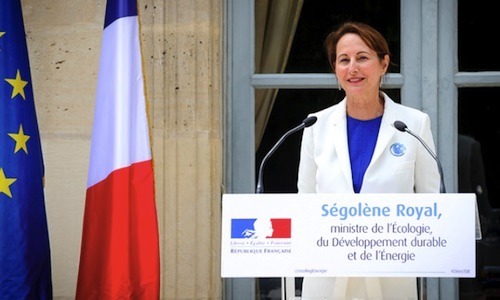

The conclusions were based on a group of experts in toxicology and epidemiology, according to a press release (via Google translate).
According to the release, Royal has acknowledged the conclusions of ANSES and has asked the agency to immediately re-examine all glyphosate formulations containing these co-formulants and invites the agency to withdraw marketing authorizations for these formulations by the end of March.
Amidst the contradictory reports, regulators in the European Union as a whole have until June 30 to make a decision on the marketing authorization of glyphosate herbicides.
Monsanto maintains the safety of its products and vehemently denied glyphosate’s link to cancer. The company has demanded a retraction of the IARC’s report.
Glyphosate is now the “most widely applied pesticide worldwide,” according to a report published in the peer-reviewed journal Environmental Sciences Europe this month. The paper revealed that since 1974, when Roundup was first commercially sold, more than 1.6 billion kilograms (or 3.5 billion pounds) of glyphosate has been used in the U.S., making up 19 percent of the 8.6 billion kilograms (or 18.9 billion pounds) of glyphosate used around the world.
“Genetically engineered herbicide-tolerant crops now account for about 56 percent of global glyphosate use,” agricultural economist Charles M. Benbrook, PhD, and author of the study wrote in his paper. “In the U.S., no pesticide has come remotely close to such intensive and widespread use.”
The embattled multinational biotech firm is staring down mounting lawsuits alleging that exposure to the controversial chemical causes cancer.
Coffee Farmers Sue #Monsanto for Hiding Cancer-Causing Impact of #Glyphosate https://t.co/f5ai6JJ8ZW @nongmoreport pic.twitter.com/H4ExHXB0NY
— EcoWatch (@EcoWatch) February 9, 2016
In the U.S., tallow amine can be found in several household products, according to the U.S. Geological Survey (USGS). The agency considers polyethoxylated tallow amine (POEA) to have known toxic effects on aquatic organisms. POEA was added to the original formulation of the herbicide glyphosate and the additive is still common in several newer agricultural and household glyphosate formulations, the USGS said.
“Since glyphosate is one of the most widely used pesticides in the United States, the findings could indicate that POEA may be widely available for transport into surface water and groundwater,” the USGS said.
Europeans tend to be far more suspicious of biotechnology and genetically modified organisms (GMOs) than people in the U.S. GMOs are heavily regulated in the European Union.
In June 2015, France restricted the sale of glyphosate weedkillers in garden centers.
“France must be on the offensive with regards to the banning of pesticides,” Royal said then. “I have asked garden centers to stop putting Monsanto’s Roundup on sale.”
France also has a ban on aerial spraying of pesticides and prohibits pesticides in parks and green spaces.
A la place du glyphosate (round up), pesticide cancérigène selon l'OMS, jardinez nature http://t.co/LNJ9w51Yb5 pic.twitter.com/Gfr4pW8aO2
— Ségolène Royal (@RoyalSegolene) June 14, 2015
YOU MIGHT ALSO LIKE
3 Reasons Why Flint’s Water Is Poisoned: Lack of Investment, Equity and Democracy
Organic Farmer Dealt Final Blow in Landmark Lawsuit Over Monsanto’s GMO Contamination
Coffee Farmers Sue Monsanto for Hiding Cancer-Causing Impact of Glyphosate
Imports of Genetically Engineered Salmon Blocked Until Labeling Requirements Are Established

 233k
233k  41k
41k  Subscribe
Subscribe 